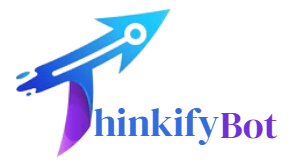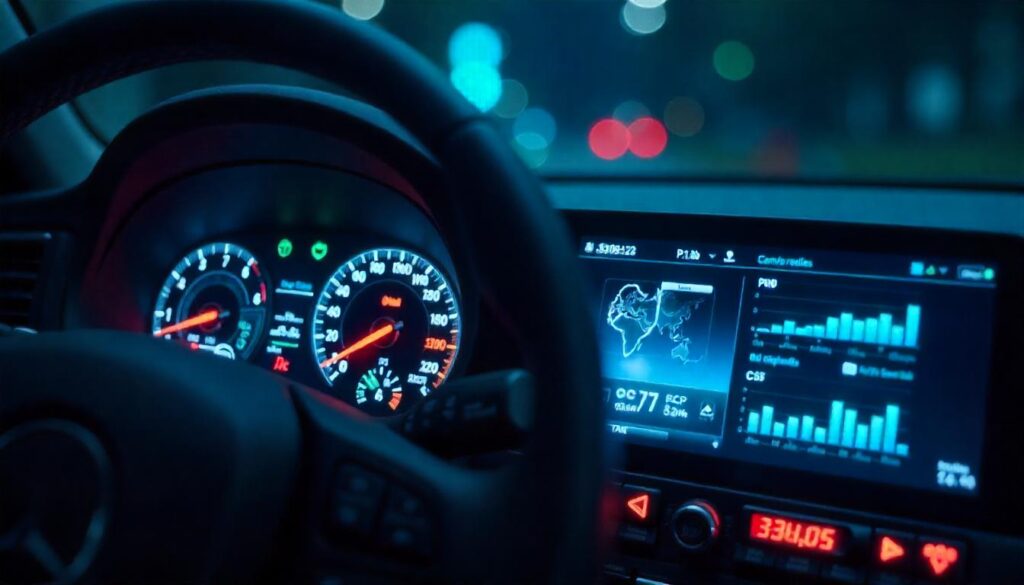Introduction
The automotive industry is undergoing a significant transformation driven by digital technologies such as Artificial Intelligence (AI), the Internet of Things (IoT), and blockchain. These innovations are revolutionizing manufacturing, optimizing supply chains, and enhancing the customer experience. This whitepaper explores the key technological advancements reshaping the automotive industry and provides real-world examples of how automakers are integrating these digital solutions.
AI in Automotive Manufacturing and Operations
Artificial Intelligence (AI) is playing a crucial role in automotive manufacturing by improving production efficiency, predictive maintenance, and quality control. AI-powered robots are being used in assembly lines to increase precision and reduce human error.
- Predictive Maintenance: AI-driven predictive analytics help manufacturers anticipate equipment failures before they occur. For example, BMW uses AI to analyze sensor data from machinery, reducing unplanned downtimes and minimizing operational costs.
- Quality Control: AI-based vision systems inspect car components for defects, ensuring that only high-quality parts enter the assembly line. Tesla employs AI-powered image recognition to detect irregularities in vehicle production.
- Supply Chain Optimization: AI enables real-time demand forecasting and supply chain analytics. Volkswagen leverages AI to optimize logistics, reducing inefficiencies in the procurement and distribution of automotive components.
IoT and Connected Vehicles
The Internet of Things (IoT) is revolutionizing the automotive industry by enabling smart manufacturing processes and enhancing vehicle connectivity. IoT-powered sensors and telematics solutions provide real-time monitoring and data analytics.
- Smart Factories: IoT-based systems allow manufacturers to create digital twins—virtual replicas of physical production lines—to monitor and optimize performance. Ford has implemented IoT in its factories to improve energy efficiency and reduce production downtime.
- Connected Cars: Modern vehicles are equipped with IoT sensors that collect and transmit data in real time. General Motors’ OnStar system provides vehicle diagnostics, remote monitoring, and emergency response services using IoT.
- Fleet Management: IoT solutions are widely used in fleet management to track vehicle conditions, fuel consumption, and driver behavior. Daimler’s FleetBoard telematics system enhances operational efficiency by offering real-time insights for logistics providers.
Blockchain for Supply Chain Transparency and Security
Blockchain technology is being adopted to improve transparency, traceability, and security within the automotive supply chain. This decentralized ledger system enables automakers to track components from raw material sourcing to vehicle assembly.
- Supply Chain Traceability: Blockchain enables automakers to ensure the authenticity of parts and detect counterfeit products. Renault has implemented blockchain-based tracking to certify car components and reduce fraud.
- Smart Contracts: Self-executing blockchain contracts facilitate seamless transactions between manufacturers, suppliers, and dealerships. Mercedes-Benz is exploring blockchain smart contracts to automate supplier payments and procurement.
- Data Security: Blockchain enhances data security in connected vehicles by encrypting vehicle-to-vehicle (V2V) and vehicle-to-infrastructure (V2I) communications. Toyota is investing in blockchain solutions to prevent cyber threats in autonomous vehicles.
Customer Experience and Digital Retail Transformation
Digital transformation is redefining the automotive retail experience by enabling personalized customer interactions and seamless digital transactions.
- Online Car Sales: Automakers are shifting towards direct-to-consumer (DTC) sales models. Tesla pioneered this approach by allowing customers to purchase vehicles entirely online without visiting a dealership.
- AI-Driven Customer Support: AI-powered chatbots and virtual assistants enhance customer service. Hyundai’s AI-based digital assistant, Hyundai Voice Assistant, provides real-time vehicle information and troubleshooting guidance.
- Augmented Reality (AR) Showrooms: AR technology is revolutionizing automotive retail by enabling virtual test drives and interactive vehicle demonstrations. Porsche uses AR-powered applications to offer immersive customer experiences in its showrooms.
Challenges and Future Prospects
Despite its advantages, digital transformation in the automotive industry faces challenges such as high implementation costs, cybersecurity risks, and regulatory compliance issues. Automakers must invest in robust cybersecurity measures, ensure data privacy, and comply with evolving regulations to fully leverage digital technologies.
Looking ahead, the integration of 5G connectivity, autonomous driving advancements, and AI-driven personalization will further accelerate digital transformation. Automakers that embrace digital innovation will gain a competitive edge in the evolving automotive landscape.
Conclusion
Digital transformation is reshaping the automotive industry through AI, IoT, and blockchain applications. From optimizing manufacturing processes to enhancing customer experiences, these technologies are driving efficiency, sustainability, and innovation. As automakers continue to adopt digital solutions, they must navigate challenges while leveraging opportunities to stay ahead in this rapidly evolving industry.


